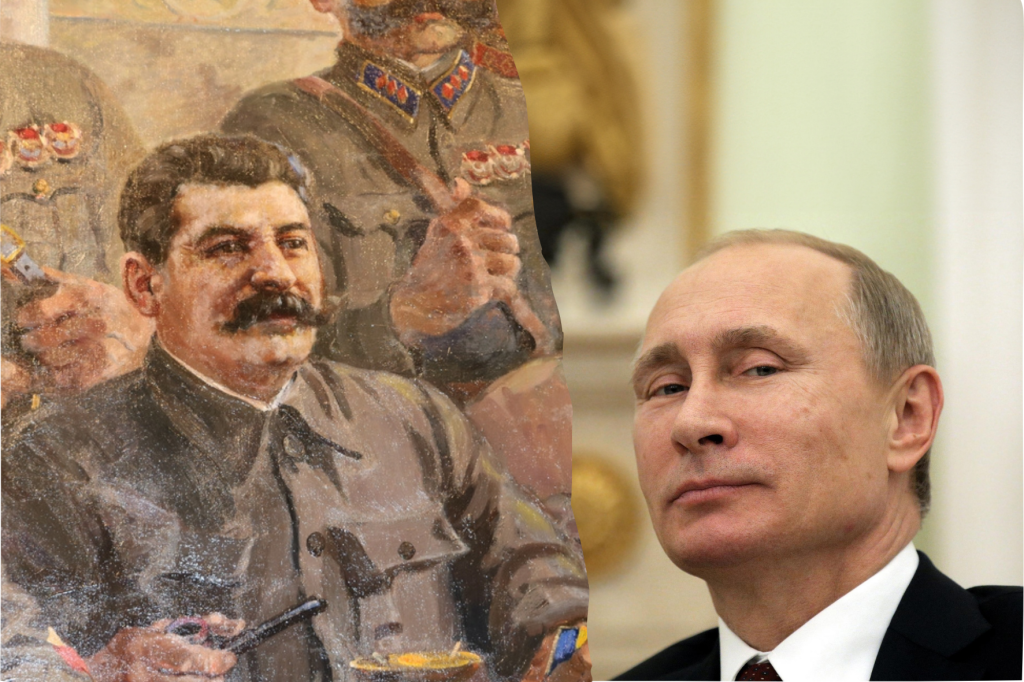It was meant as a positive comparison.
Others are reading now
In a recent television interview on the program “Legend” aired by RTVI, Russian writer and public figure Alexander Prokhanov made a striking comparison, declaring President Vladimir Putin as Russia’s “fifth Stalin.”
The Fifth Stalin
According to Lenta Prokhanov elaborated on this statement by drawing parallels between Putin and four other significant figures in Russian history, who, in his view, played similar roles in shaping the nation’s destiny.
According to Prokhanov, the “first Stalin” was Vladimir the Great, who Christianized Kievan Rus’ in the 10th century. The “second Stalin” was Ivan the Terrible, known for centralizing power and expanding Russian territories in the 16th century.
Peter the Great, who modernized Russia and established it as a major European power in the early 18th century, was named the “third Stalin.” The “fourth Stalin,” according to Prokhanov, is Joseph Stalin, the Soviet leader whose rule saw the USSR emerge as a global superpower after World War II.
Also read
Not as Positive in the West
Prokhanov asserted that President Putin has followed in these historical figures’ footsteps by reviving Russia’s strength and “restoring Russian greatness” after the turmoil of the 1990s. He emphasized that Putin has “already formed as Stalin and continues to form,”.
In the West, Joseph Stalin is generally not viewed as a “good guy.”
While he was an important figure in World War II, where the Soviet Union played a crucial role in defeating Nazi Germany, Stalin’s legacy is overwhelmingly associated with brutal repression, mass purges, forced labor camps (Gulags), widespread famine, and the deaths of millions of people.
Stalin’s policies, such as the Great Purge in the late 1930s, resulted in the execution, imprisonment, and exile of millions of people, including political opponents, military leaders, intellectuals, and ordinary citizens.
The forced collectivization of agriculture in the Soviet Union led to severe famines, most notably the Holodomor in Ukraine, where millions perished.


